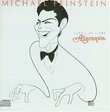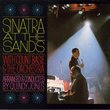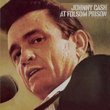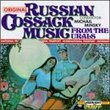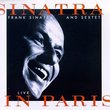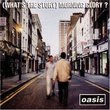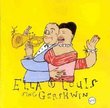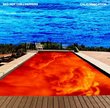| All Artists: Paul Motian Band Title: Garden of Eden Members Wishing: 3 Total Copies: 0 Label: ECM Records Original Release Date: 1/1/2006 Re-Release Date: 1/24/2006 Genres: Jazz, Special Interest, Pop Styles: Avant Garde & Free Jazz, Modern Postbebop, Bebop Number of Discs: 1 SwapaCD Credits: 1 UPC: 602498760277 |
Search - Paul Motian Band :: Garden of Eden
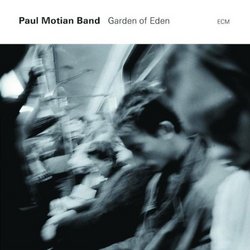 | Paul Motian Band Garden of Eden Genres: Jazz, Special Interest, Pop
|
Larger Image |
CD DetailsSimilarly Requested CDs
|
CD ReviewsAptly Titled Stephen A. Smith | Boston, MA | 01/31/2006 (5 out of 5 stars) "This CD is packaged with a sticker describing it as "central to what jazz is becoming, where it's moving." It's a quote from Ben Ratliff circa 2003, describing Paul Motian's Electric Be Bop Band. This band adds a third guitar to that EBBB configuration (two guitars, two tenors, bass and drum), but it's essentially the same concept. In Ratliff's article, Motian recalled playing with Bill Evans and Scott LaFaro; he said they wanted to "make a music that wouldn't have a date on it -- that in the year 2000 people could listen to this music that was being made in 1959, and it might still sound fresh." I listen to most of the new jazz every year, and I think Ratliff is absolutely right: This is where jazz is going. The music has become more focused on space, on playing less rather than more, and that's a textbook description of Motian's style. Brian Blade described Motian's drumming as "transcendent." He plays with an incredibly open feel. He doesn't keep time by clicking away a 4/4 beat between the ride and snare; you might say he acknowledges time, with a brush here and three flicks of a cymbal there. The program on "Garden of Eden" uses bebop standards as bookends, but there's plenty of original material. "Mesmer" is a composition that develops like Wayne Shorter's "Nefertiti" -- a melody that's sort of like circling a small town in an airplane, looking down at something different on each pass. The angular "Mumbo Jumbo" builds a complex tension that almost feels more like suspense. All the tunes -- seven by Motian, and one each by Cardenas and Cheek -- are carefully crafted, and all are fitting to the feel of Motian's band: which has nothing to do with solos or chord changes, and a lot to do with hanging music onto a frame. Obviously, this septet is unconventional. Most bandleaders, when they feel like breaking the mold, remove their harmonic instruments. Motian went the other way; he took his EBBB, already heavy with two guitars, and added one more. He's definitely painting with a color that no one else is using -- and that's partly why it's exciting. For decades, arrangers have been warned to be careful using two harmonic instruments because the two can crowd each other and create a muddy sound. Motian stacks three electric guitars on top of each other, and his music works. It's partly because his music is unique. He distinguishes between timbre and texture; and he leaves plenty of space, as both a composer and a drummer, for everyone to find their places. Also, it's partly because the band is just that good: Chris Cheek and Tony Malaby play tenor saxophones; Steve Cardenas, Ben Monder, and Jakob Bro form the guitar line; and Jerome Harris takes the electric bass. It's definitely worth your time to listen to this album with a good pair of headphones; Cardenas and Bro, along with the horns, are panned just enough off-center to easily distinguish who plays what, but there's enough blending that they still sound cohesive. It's a credit to first-rate engineering. Motian wanted to make timeless music; and I think that, throughout his career, he's done exactly that. He has never compromised his vision, not once in nearly a half-century, and now it seems he's accomplished his goal; in 2006, players are just getting around to checking out the ideas he was working with in 1959. It's safe to guess this album will hold a good 40-year shelf life, too -- and in the meantime, it's great music." At pace with a reflection. Justin S. Stec | minneapolis MN | 04/26/2006 (5 out of 5 stars) "Listening to this disc, I fall into it so wonderfully that my thougts start to fade away and merge with the music--or maybe it is that the music influences my thoughts. Either way, I almost forgot that there was music playing, and, only at certain points began to "hear" it as something separate from my existence. It is dreamy and surreal, but also precise and detailed. You can forget about listening to a particular instrument or trying to deconstruct the music. It is a very good disc because of its unity, and I would recommend buying it if you can." Best of Motian Bill Wood | Vashon Island, WA | 06/06/2006 (5 out of 5 stars) "Everything you go to Paul Motian for is here: his sober thoughtfulness, his pessimism, his lyricism and insistence on beauty in the midst of grief. As usual, there is the emphasis on song, sometimes keening, sometimes crooning, sometimes kidding, and, as usual, the shadow of Ornette Coleman smiling in the background. I have a lot of Motian, but I can safely say this is the first collection of his where I am not finding myself skipping over any tracks. All are equally strong. A particularly delicious surprise is the discovery of Jerome Kern's "Bill" in the middle of the mix, harking back to the days of the "On Broadway" albums with Joe Lovano, Bill Frisell and Charlie Haden, that introduced the saxophone/electric guitar sound that subsequently expanded into the Electric BeBop Band, and now the two-saxophone-three-guitar manifestation on "Garden of Eden". This is music of the highest order."
|

 Track Listings (14) - Disc #1
Track Listings (14) - Disc #1

